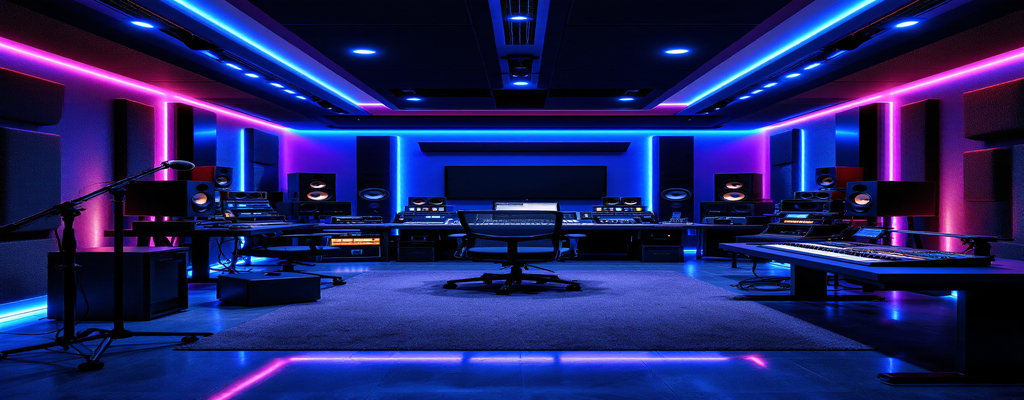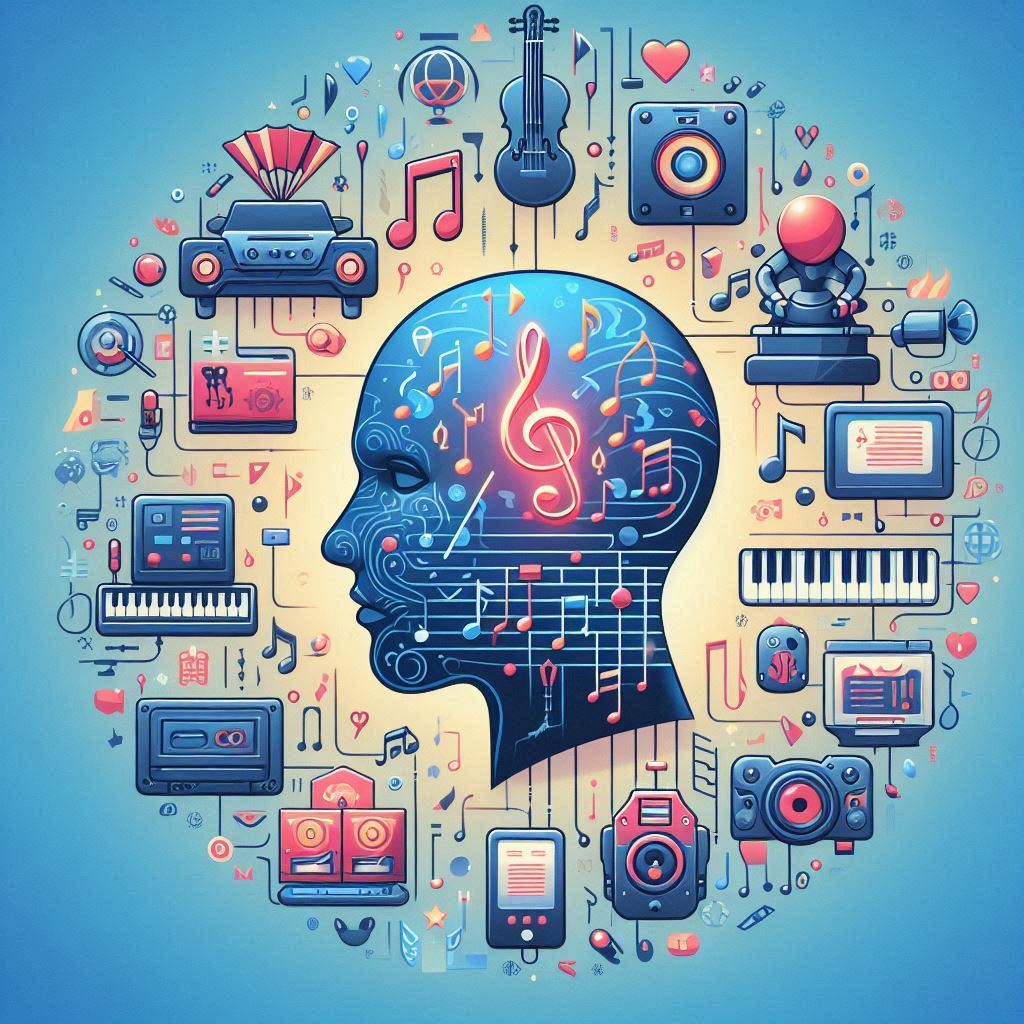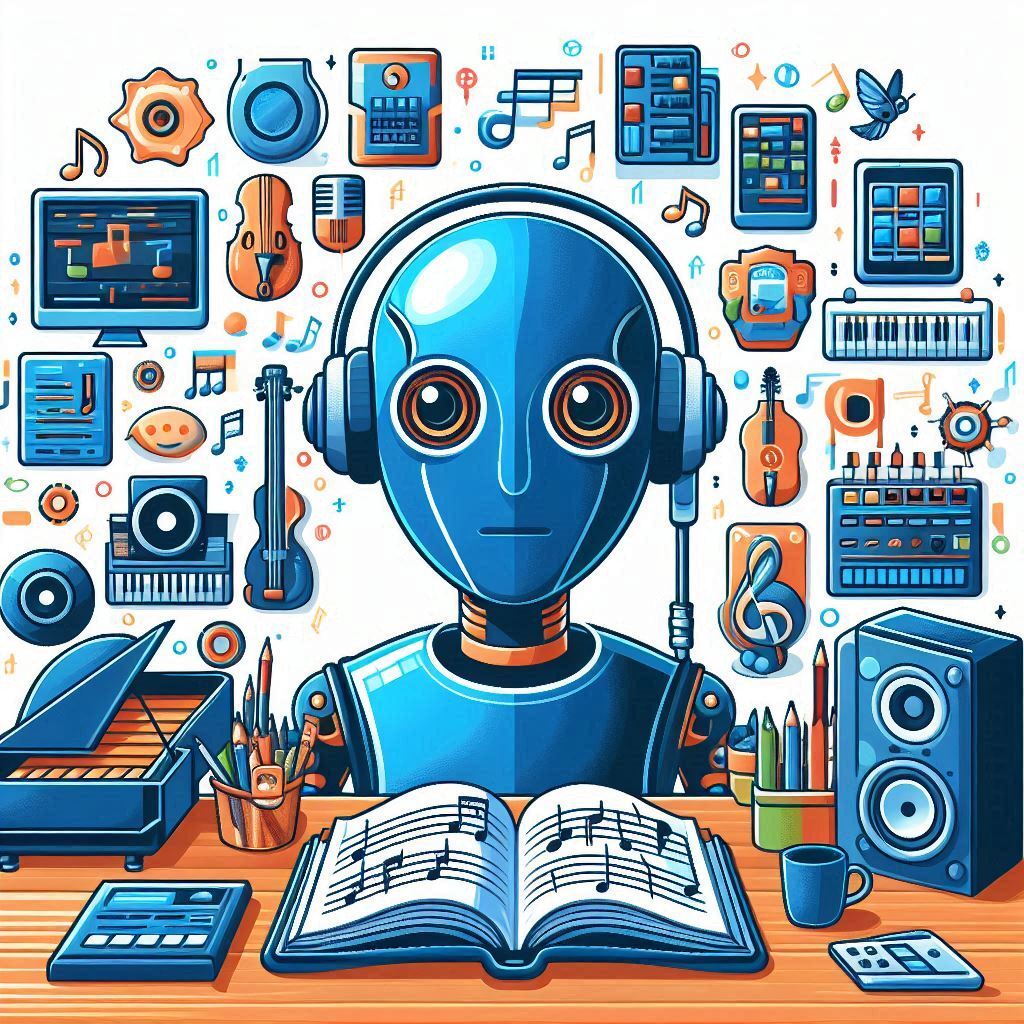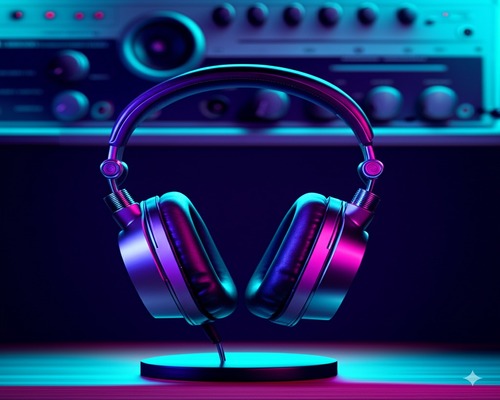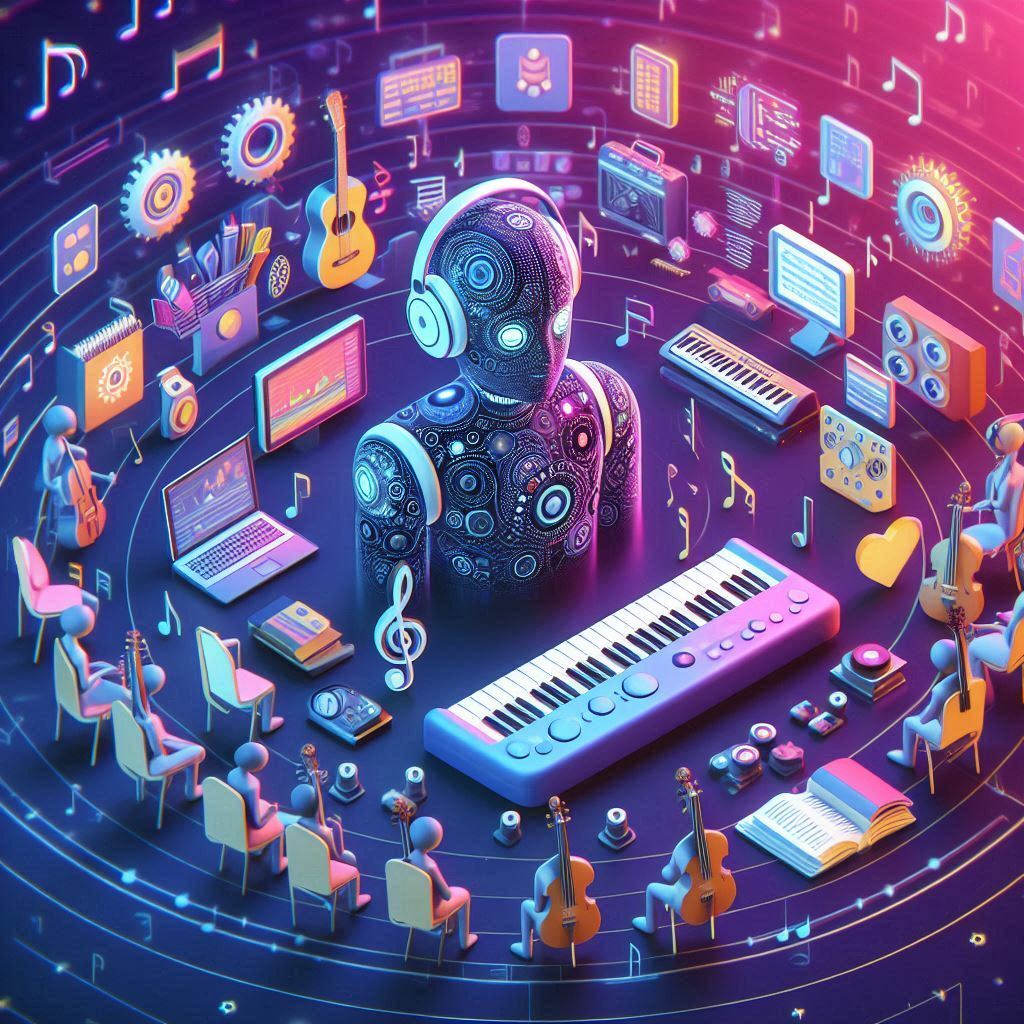
The music world is changing fast, and AI is a big part of that change. Whether you’re just starting out or you’ve been making music for years, there’s a growing need for good AI music learning & resources to help you keep up. This guide breaks down everything from basic tutorials to advanced courses and communities that can help you use AI in your music.
What You’ll Find in This Guide
This guide covers all the essential AI music learning & resources you need to start creating with AI tools:
- Step-by-step tutorials anyone can follow
- Comprehensive courses from respected institutions
- Technical breakdowns (that don’t require a computer science degree)
- Communities where you can connect with other AI music creators
- Important ethical considerations you should know about
Let’s dive into each of these areas to give you a complete picture of what’s available in 2025.
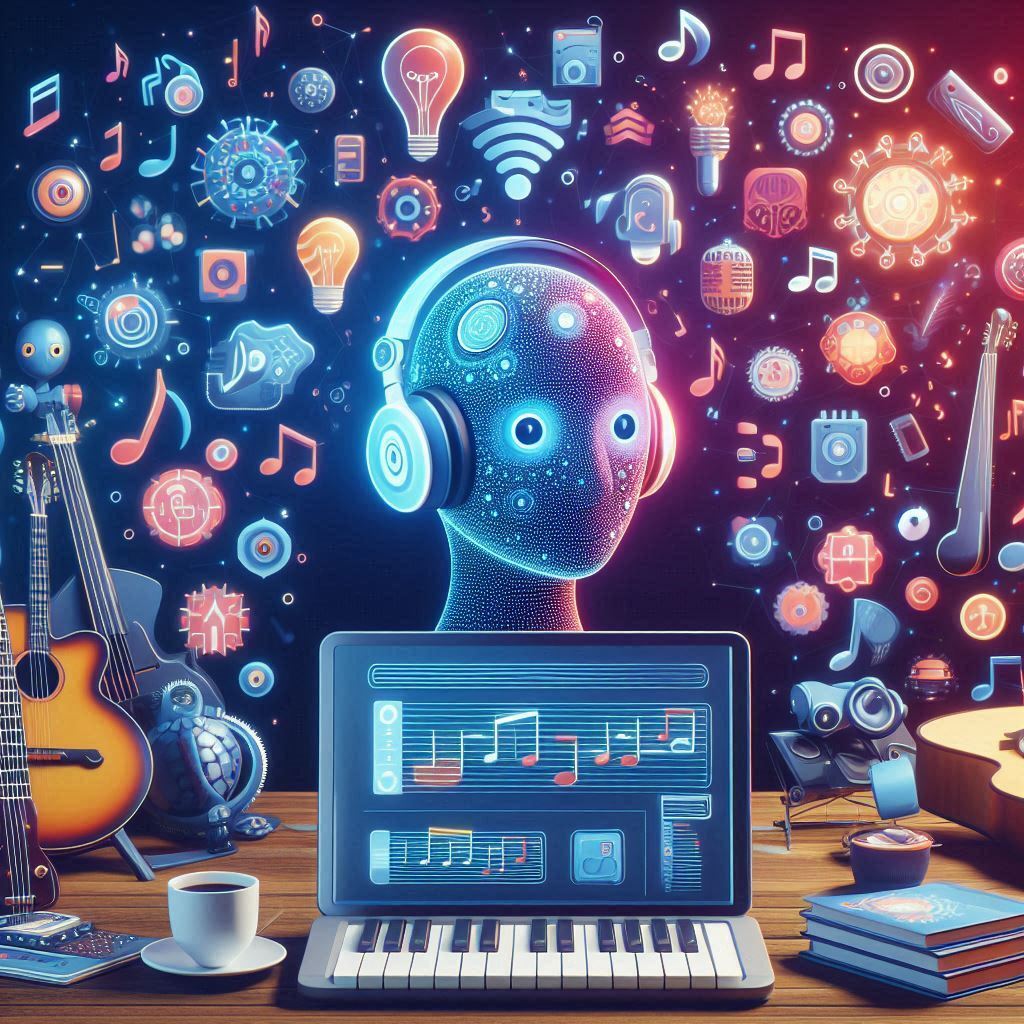
AI Music Tutorials and Guides
If you’re new to using AI in music, starting with some basic tutorials is your best bet. Good AI music learning & resources in the tutorial category break down complex ideas into manageable steps.
What to Look For in Tutorials
The best AI music tutorials include:
- Practical walkthroughs on using AI for songwriting, mixing, and mastering
- Guides for popular tools like LANDR, Amper Music, and OpenAI’s Jukebox
- Video lessons showing how to integrate AI into your DAW (Digital Audio Workstation)
- Beginner-friendly explanations that don’t assume you know programming
One standout resource is Berklee Online’s AI for Music and Audio course, which offers tutorials on rhythm detection, melody extraction, AI mixing, and generative music creation. They blend theory with hands-on practice so you can actually apply what you learn.
For more specific guidance on using AI in your productions, check out our collection of AI Music Production articles.
AI Music Courses and Platforms
For a more structured learning experience, dedicated courses provide a curriculum-based approach to AI music learning & resources. These programs often include video lectures, assignments, and sometimes live workshops.
Popular AI Music Courses
Some of the best options available today include:
- Berklee Online: AI for Music and Audio – Covers AI fundamentals, music information retrieval, production techniques, generative AI, and ethics
- Born To Produce: AI Music Mastery – Focuses on practical workflows for integrating AI into your production process
- Generative Music AI Series (from Sound of AI & Music Technology Group) – Combines technical knowledge with creative applications
These courses are available through platforms like Coursera, Udemy, and LinkedIn Learning, with options for different skill levels and budgets. YouTube also offers free lessons and tool demonstrations if you’re not ready to invest in a paid course.
Want to explore different musical styles with AI? Learn more in our guide to AI Music by Genre.
Understanding the Technology Behind AI Music
Getting a handle on the technical side of AI music generation helps you use these tools more effectively. You don’t need to become a programmer, but understanding the basics of how the technology works is valuable AI music learning & resources territory.
Key Technical Topics Worth Learning
- AI algorithms for melody extraction, chord recognition, and separating audio sources
- Basic neural network concepts used in music generation
- How audio is represented digitally (time-domain, frequency-domain, spectrograms)
- Simple coding examples using Python libraries (if you want to go deeper)
Berklee’s course includes Python code snippets and explanations of AI models, helping you understand how AI “learns” and creates music without requiring previous programming experience.
Discover how professionals are using these technologies in our guide to AI Tools for Musicians.
AI Music Communities and Forums
Connecting with other people interested in AI music is one of the most valuable AI music learning & resources approaches you can take. These communities provide support, inspiration, and help you stay current with rapidly changing technology.
Where to Find AI Music Communities
- Reddit – Check out r/AI_Music and r/MusicProduction for discussions and shared projects
- Discord servers – Many are dedicated to AI music creation with real-time chat
- GitHub repositories – Find open-source AI music tools and datasets
- The Sound of AI community – Supports people learning and practicing generative music AI
These communities give you access to troubleshooting help, expert advice, and the chance to share templates, presets, and workflows. They’re also great for networking and finding potential collaborators.
See how AI is changing the broader music industry in our analysis of Impact of AI in Music.
Ethical and Legal Considerations of AI Music
Understanding the ethical landscape around AI-generated music is an essential part of AI music learning & resources. As these technologies develop, questions about copyright, ownership, and the impact on human artists become increasingly important.
Key Ethical Issues to Understand
- Copyright challenges with AI-generated works and training data
- Who owns the rights to AI-assisted compositions
- Ethical debates about AI’s role in creative industries
- Current industry guidelines and emerging legislation
Berklee’s AI course addresses these complexities, encouraging critical thinking about AI’s impact on society and legal frameworks. Being aware of these issues helps you navigate rights management and ethical questions responsibly.
Learn more about AI’s role in specific genres through our guide to AI in Electronic Dance Music.
AI Music Learning Through Interactive Biometric Feedback
A cutting-edge development in AI music learning & resources involves using biometric feedback to personalize the learning experience. This innovative approach adapts lessons based on physiological data like heart rate and muscle tension.
How Biometric Feedback Enhances Learning
- Real-time adjustment of difficulty based on your stress and focus levels
- Enhanced engagement through gamified progress tracking
- Applications in therapeutic music education and reducing performance anxiety
This technology is still emerging but represents the future of personalized music education, offering an adaptive experience that traditional tutorials can’t match.
For more on the future of music technology, read our predictions about AI Music Production 2025.
Specialized Resources for Different Genres
Different musical styles require specialized AI music learning & resources. Whether you’re creating hip-hop beats or classical compositions, there are tools and courses tailored to your specific needs.
Genre-Specific AI Music Resources
- Hip-Hop and Rap – Tutorials focusing on beat making, sample manipulation, and vocal processing
- EDM and Electronic – Resources for synthesizer design, rhythm programming, and drop construction
- Classical and Orchestral – Courses on orchestration, harmony, and realistic instrument modeling
- Pop Music – Guides for hook creation, arrangement, and commercial production techniques
Find genre-specific techniques in our guides to AI in Pop Music and AI Beat Maker for Hip-Hop.
Practical Applications and Success Stories
Seeing how others have successfully applied AI music learning & resources can provide inspiration and practical insights for your own journey. Many musicians and producers are sharing their experiences with AI tools.
Real-World Success Stories
- Independent artists using AI to create professional-sounding tracks on limited budgets
- Film composers utilizing AI for rapid soundtrack prototyping
- Music educators integrating AI tools into their teaching methods
- Producers finding new creative directions through AI collaboration
These case studies demonstrate that AI isn’t replacing human creativity but enhancing and expanding it in exciting ways.
Explore more orchestral applications in our guide to AI in Classical and Orchestral Music.
FAQs About AI Music Learning & Resources
What types of AI music tutorials are best for beginners?
Step-by-step video guides with practical examples and no coding required, such as those from Berklee Online and YouTube channels, are ideal for beginners.
Are there comprehensive courses for learning AI music production?
Yes, platforms like Berklee Online and Born To Produce offer structured courses covering both theory and hands-on AI music production techniques.
How can I understand the technical side of AI music?
Courses that include explanations of machine learning models, neural networks, and basic coding examples provide foundational knowledge without requiring a technical background.
Conclusion
The world of AI music learning & resources is blowing up right now, and it’s creating some pretty cool opportunities for musicians of all kinds. Whether you’re just starting out or you’ve been in the game for years, there’s something out there for you – from easy-to-follow tutorials to deep-dive courses and friendly communities.
As all this tech keeps changing (and trust me, it’s changing fast), it’s important to stay in the loop about both the creative stuff you can do and the ethical questions that come with it. That way, you won’t get caught off guard as the music world continues to evolve.
The bottom line is this: AI isn’t here to replace your creativity – it’s more like a new instrument or tool that can help you make music in ways you might not have thought possible before. Investing some time in good AI music learning & resources now will help you stay ahead of the curve and maybe even find some new inspiration for your music. The future of making music is looking more and more like a team effort between human creativity and AI capabilities. And honestly, that’s pretty exciting.
